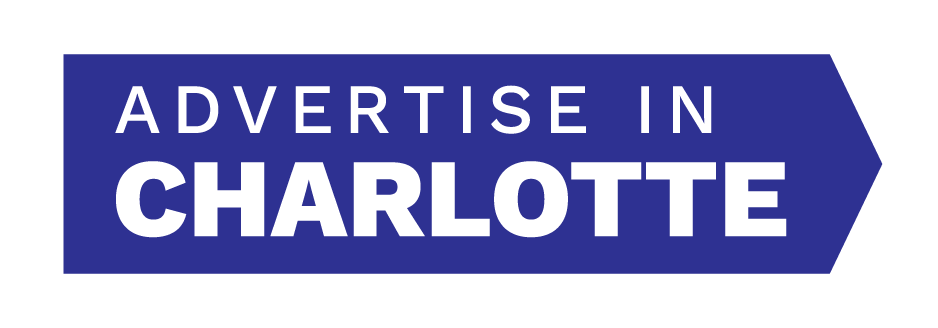 It is not a gimmick. Many North Carolina business owners qualify for free local advertising on Charlotte radio. They pay nothing. Zero. Zilch. Zip. Bupkis. Free.
It is not a gimmick. Many North Carolina business owners qualify for free local advertising on Charlotte radio. They pay nothing. Zero. Zilch. Zip. Bupkis. Free.
Henry Ford understood that the continual investment in advertising was necessary for a business to be successful. “Stopping advertising to save money," he said, "is like stopping your watch to save time.”
Sometimes, though, when daily expenses challenge their cash flow, small business owners must prioritize spending.
When that happens, unfortunately, Mr. Ford’s advice is ignored and buying commercials on Charlotte radio will move down the list behind making payroll, maintaining delivery vehicles, and replenishing stock.
Many times advertising doesn’t make a list at all.
Some Charlotte business owners have discovered that their radio advertising doesn’t have to be sacrificed at all when belts need to be tightened. It turns out there’s a deep pool of “free money” that can be dipped into for the singular purpose of advertising. These funds are called cooperative funds, or co-op for short.
Get 100% of Your Advertising Expense Paid For
Inc. Magazine defines co-op advertising as “the sharing of costs for locally placed advertising between a retailer and a manufacturer of the products they sell.” Often, the manufacturer will cover 100% of the cost of advertising. In other words, free advertising.
Manufacturers love co-op because it extends the marketing of their products. Charlotte area small business owners love co-op funds because they contribute to the growth of their businesses through consistent advertising.
According to BIA Advisory Services, more than 40% of all small business owners qualify for co-op funds. It is also reported that less than half of the $70-billion available is ever claimed by business owners.
How Co-Op Advertising Works
Stearns & Foster, for instance, is a major brand of mattresses. There are many Charlotte area business owners who sell the company's products. Each of these local dealers could accrue co-op funds equal to 5% of the wholesale cost of the products they sell during the year.
If an S&F dealer in South Park for example, sold $900,000 worth of the company's products last year, then that store would receive $45,000 in advertising credit. This could include buying commercials on Charlotte radio stations.
To claim co-op funds, small business owners must comply with each manufacturer’s guidelines. Stearns & Foster, for instance, requires pre-approval for dealer radio commercials; product exclusivity within the ad; and a notarized affidavit of performance from the participating radio stations. A tiny bit of work for free advertising money.
Not every manufacturer offers 100% co-op reimbursement. But most do provide support. These plans generally fall into six categories. Charlotte small business owners should ask each of their vendors which type of programs they offer.
- 100% Plan: Manufacturer pays the total advertising cost based on the amount the retailer accrues from purchases
- Shared Plan: Manufacturer and retailer each pay part of the advertising cost based on a predetermined split (e.g., 50/50, 75/25)
- Unlimited Plan: Manufacturer and retailer each pay part of the ad cost, but accruals are not tied do any purchases. The manufacturer may state a maximum number of dollars or a finite number of ads.
- Bonus Plan: Added participation or accruals are based on specific manufacturer promotions or new product introductions.
- Negotiable Plan: All elements (accrual, participation, term, etc.) are negotiable with manufacturer sales operations and may include parts of other plan types.
Tips For Optimizing Co-op Advertising
When a Charlotte small business utilizes its coop advertising, Entrepreneur Magazine offers the following tips to maximize results:
- Keep careful records of how much you've purchased from each supplier.
- If you're preparing your own ads, work with an advertising professional to create an ad you think will appeal to the manufacturer. Keep in mind the image the manufacturer presents in its own ads.
- Make sure your company's name stands out in the ad. Your goal is not so much to sell the supplier's product but to get customers into your store.
- If a manufacturer has no established co-op program in place, pitch your ad campaign to the vendor anyway.
- Expect vendors to help out; after all, you're bringing them business. If your vendor doesn't offer co-op advertising money, you should look for another vendor who does.
- Be sure to follow up. Money goes only to those who submit claims.
The US Small Business Administration advises, "Advertising, if done correctly, can do wonders for your product sales, and you know what that means: more revenue and more success for your business." So, why wouldn’t a local small business advertise on Charlotte radio, especially when it can be done with someone else’s money?




